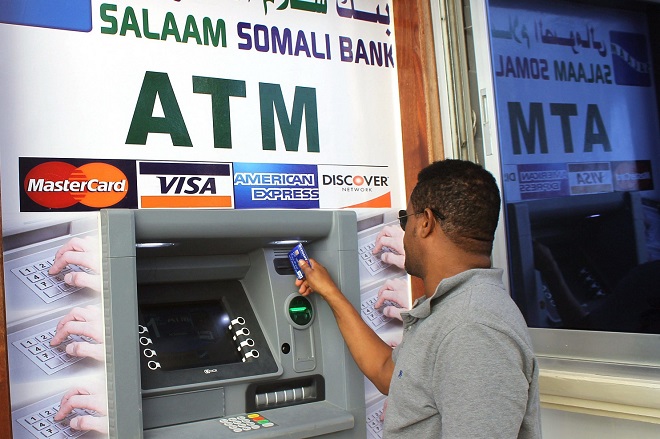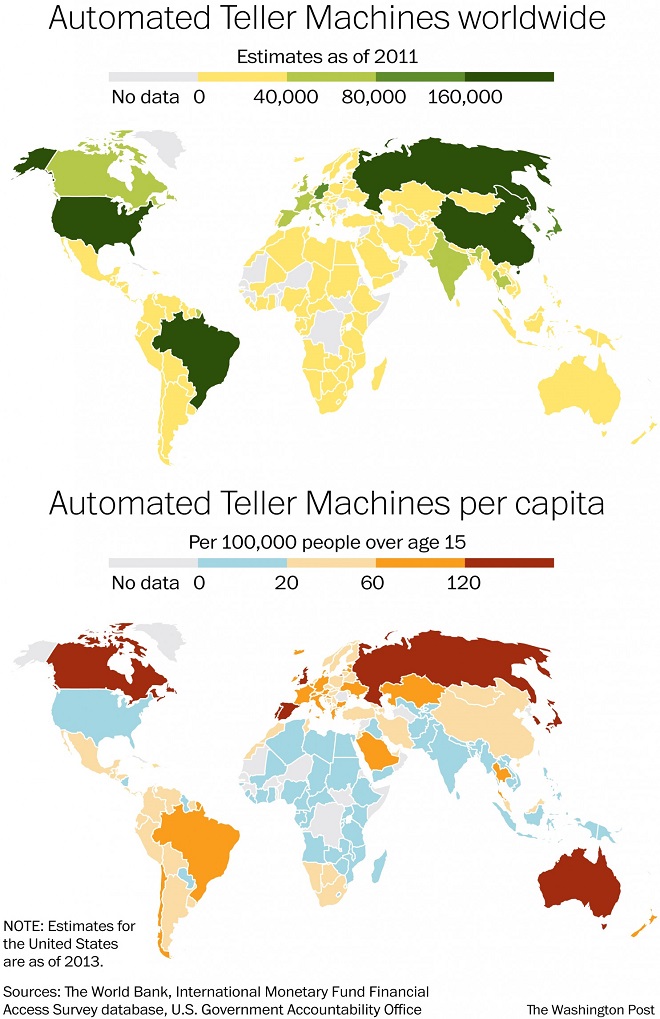
Wednewsday October 8, 2014

A Somali man uses the first-ever ATM cash withdrawal machine installed in the Somalian capital Mogadishu, on Oct. 7, 2014. The machine, installed by the Salaam Somali Bank in an upmarket hotel, allows customers to withdraw U.S. dollars.
It's been a long time coming. The first ATM (automated teller machine) was installed in London by Barclay's Bank in 1967, and made in to New York a couple of years later. Since then, the concept of a "cash machine" has propagated around the world, with millions of ATMs in countries far and wide.
But what countries other than Somalia have lagged behind in the use of ATMs? Myanmar was once renowned for its lack of ATMs, and the inability (or refusal) of businesses to accept credit cards, but in the past couple of years that has changed. These maps, made using estimates from the World Bank, show where the world's ATMs are:

(Cristina Rivero / The Washington Post)
While not included in the World Bank's data, the United States is widely accepted to have the highest number of ATMs in the world, with at least 420,000 by 2013. Figures from 2011 show that China had over 415,000, Russia over 230,000 and Brazil more than 177,000. Japan, India, and Indonesia follow.
From the World Bank data, its also possible to see the countries with remarkably few ATMs. Kiribati, a small Pacific Island nation, has the lowest number with just 7, while the Federated States of Micronesia only had 9. Some countries with relatively large populations also had few ATMs: Sierra Leone, for example, had just 14 ATMs for a population ofaround 6 million, while Haiti, with a population of around 10 million, had 29 ATMs, according to the World Bank. The World Bank's figures show that Canada, Portugal, and Russia have the highest number of ATMs per 100,000 adults in the country. At the other end of the table, the World Bank lists Myanmar as the country with the least ATMs per 100,000 adults, with just 0.09.